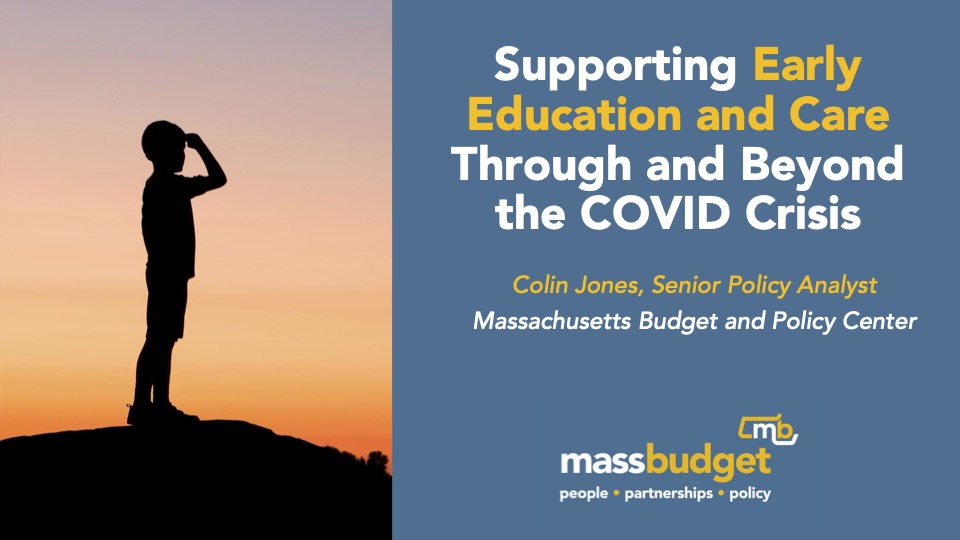When the Bough Breaks: Understanding Early Childhood Funding during COVID
At the Boston Foundation’s monthly convening on early childhood education and care on January 7, stakeholders from across the sector got a thorough overview of the Commonwealth’s early ed budget from MassBudget Senior Policy Analyst Colin Jones. He took the audience on the roller coaster ride of scary lows and exciting prospects that have characterized the pandemic era in early education, from shutdowns and losses to key policy and funding developments.
His presentation is online so you can review the slides at leisure, and view a video of his talk. But in short, early education and care (EEC) was challenged and underfunded even before COVID-19 came on the scene. EEC per child subsidies were $10,600 per year but the average cost of care was around $15,000 for a four-year-old and $21,000 for an infant. Some 20,000 children filled waiting lists for the subsidy before the pandemic. The budget had not grown significantly since 2001. With the combined inflow of funds from the pandemic-driven CARES Act, CRRSA and ARPA, however, the budget has doubled in three years.
The spirit of the federal rescue/relief effort was to get the money into the economy quickly. Even as that happens (admittedly never as quickly as desired), Jones urged the making of strategic plans for the long term, and using the new funds to back proving grounds for policies with big impacts, such as limiting parent fees to 2.5 percent of income (now fees can easily reach 10 percent and more).
“I’m just a humble researcher throwing out some math here,” he said, “but we all have to come together with a shared vision…. ARPA is a window that will close. Let’s use the funds to do rescue of course, but keep moving toward our long-term goals, and use it as a springboard to other investments. Let’s raise our ambitions—it may not be as unrealistic as we think.”
Join the Boston Foundation online on the first Friday of each month for a conversation series that seeks to understand the dimensions of this crisis, what is being done to address it, and where there is still more to do. Join us as we continue to explore the ways that our organizations, providers and families can innovate and invest in our challenged early education and care system. To learn more about the series, visit the Coffee and Conversations page.

